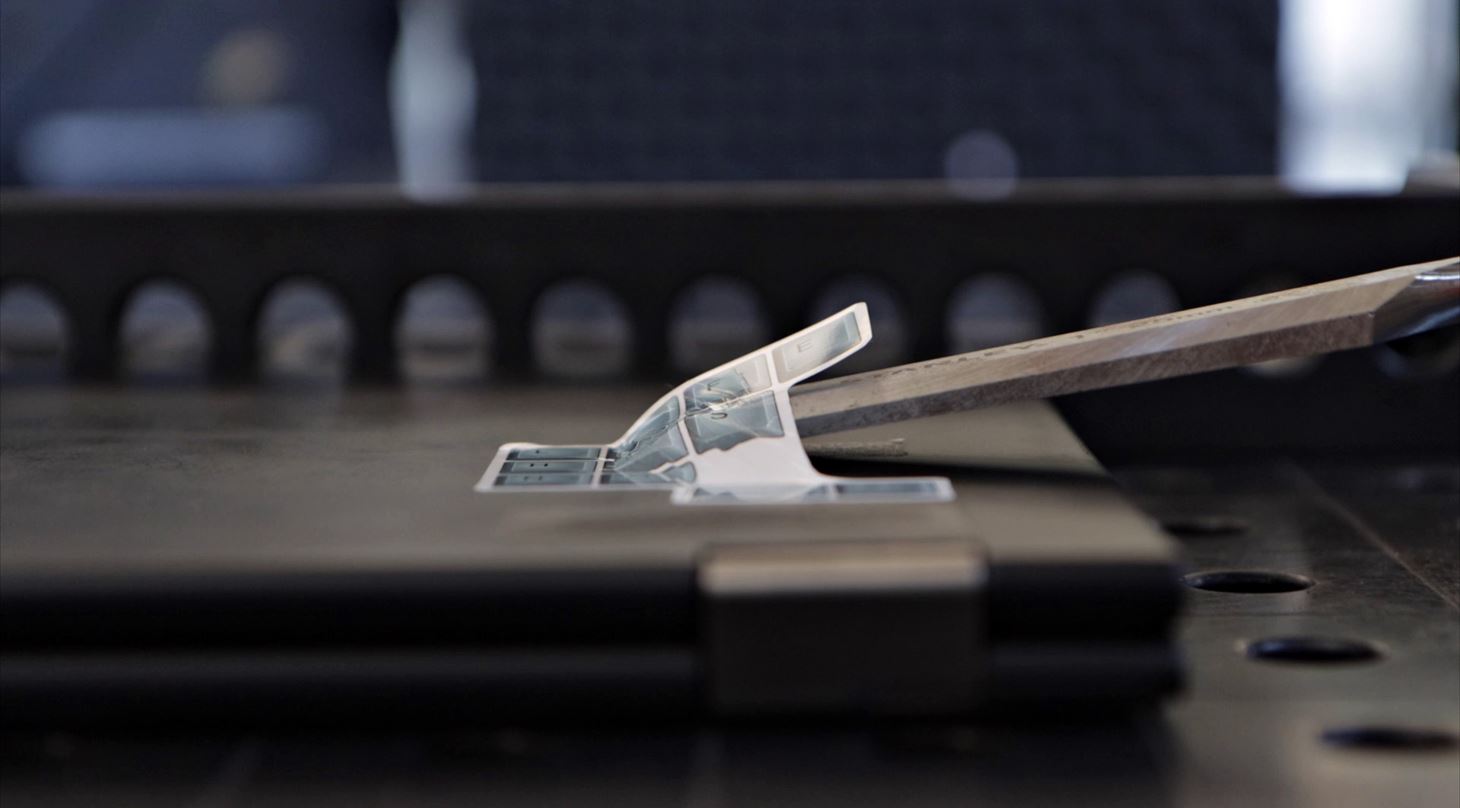
Robot removes stickers and extends the life of your computer
Tier1 Asset in Allerød refurbishes used computers and resells them, but cannot scale up without an automated process for removing awkward stickers. In a MADE Demonstration Project, the Danish Technological Institute (DTI) and SICK have demonstrated that it is possible.
Stickers in all sizes, colours, and shapes adorn many laptops. If the computer is later to be repaired and resold, it is a big manual task to remove it.
Tier1 Asset in Allerød is Europe's leading computer refurbisher, buying used laptops and other IT equipment for recycling. In their more than 4,000 m² production and warehouse facilities, employees today stand and manually remove stickers as part of the process.
- The challenge is that the process is resource-intensive and manual, so therefore the quality fluctuates. I need to increase output from 250,000 units per year to 750,000 units by 2026. This is physically impossible unless we automate, says Factory Manager Casper Gudmunthe from Tier1 Asset.
Hunted for a solution for two years
Tier1 Asset has been looking for an automated solution to removing the stickers, but none currently exists on the market.
The company has been in contact with several automation suppliers, but they have declined the job.
Tier1 Asset therefore sought help in a MADE Demonstration Project, where DTI and SICK have worked together to solve the technological need.
Having explored several different approaches, the conclusion from the vision and robotics specialists is clear: It is definitely possible to automate the process.
- This is the first time I have seen a sticker removed from one of our devices by a robot. We have been chasing a solution like this for the past two years, reports an elated Casper Gudmunthe from Tier1 Asset.
Deep learning and a chisel
The project had two main challenges: Being able to locate the stickers automatically and removing them.
- Both laptops and stickers vary considerably in size, shape, and colour, which makes it challenging for a classic rule-based vision solution to do the job. We have therefore developed and trained a neural network to detect the stickers, says Henrik Bostrup from SICK.
Deep learning was thus the answer to successfully localising the stickers.
Next step: Removing them. DTI tested several different tools, but a chisel mounted on a robot ended up proving the most effective.
- A force-torque sensor gave the robot a kind of touch sense so that it could feel when the chisel touched the computer. This is crucial, as PCs vary in size and shape, so you have to feel your way forward and be able to adapt dynamically, says Senior Specialist Martin Mølbach Olsen from DTI.
Recycling the EU pallet is not enough
According to the United Nations University, UNU, the production of an ordinary computer requires approximately 1.7 tons of raw materials and water – or the same as a medium-sized car (Computers and the Environment: Understanding and Managing their Impacts, 2003).
There is therefore great sustainability potential in upgrading or reusing existing computers, rather than producing and buying new products.
- We remanufacture an existing product, extending the lifespan without the use of new product parts. This is what we believe to be circular and sustainable, and more companies should look for the same type of solutions rather than those involving the production of new raw materials, says Casper Gudmunthe from Tier1 Asset.
- I have heard from several production companies that call themselves circular because they reuse the EU pallet from the warehouse. But this is just not sustainable if you really want to reduce the company's total CO2 emissions, he emphasises.
MADE Demonstration Project
With a MADE Demonstration Project, a small or medium-sized company can get up to DKK 100,000 in support to solve a specific challenge in the company or test a new technology in their production.
There is an ongoing application deadline for demonstration projects.
Linking up with DTI, FORCE Technology, or the Alexandra Institute, gives you access to the technologies, knowledge, and skills that are required to solve the concrete challenge in the company.
MADE Demonstration Projects are made possible with support from the Danish Industry Foundation and the Danish Board of Business Development.